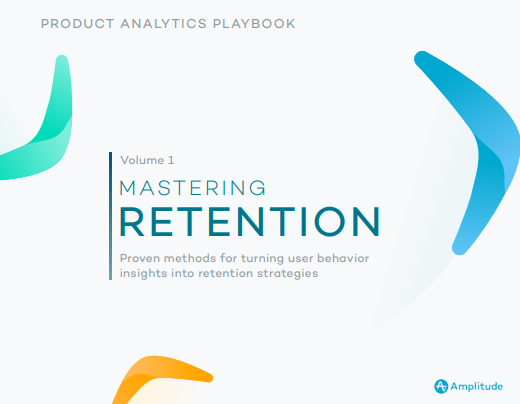Trust is vital to the future of customer experience
As third-party cookies enter their twilight, more trustworthy systems are essential to deliver the kind of digital relationships companies and customers need

Cookies have been an integral part of our online world for almost the entire history of the web. Introduced in 1994 by Netscape, they have become a vital way for businesses to maintain a persistent relationship with their customers. But they have also been frequently abused, and for this reason, Google is phasing out third-party cookie support from Chrome in the second half of 2023. How will customer relationships be maintained in a post-cookie era?
The problem with cookies was that we lost our trust in them. Too frequently, they have been used to track our every move without our permission, delivering unwanted surveillance of our online activities. This has been leveraged by companies – including Google – to tailor advertising messages in a way that has frequently felt intrusive. But the original idea behind cookies was benevolent. We do want to enjoy the good side of cookies. We do want to have shopping sites remember the contents of our carts if we pause between sessions. We do want logins to be seamless, so we don’t have to keep remembering lots of different passwords.
These fluid relationships are the heart of a good online customer experience. If your shopping site doesn’t have a persistent cart, your customer is more likely to go somewhere else and not come back after an interrupted session. The harder it is to log onto an online media streaming service, the less likely consumers will use it (and continue to subscribe). If customers trust the companies they engage with, they will be willing to let these companies hold the necessary information to deliver these seamless experiences. Although advertising is the most maligned role for legitimate cookies, customers do appreciate being shown offers that fit what they have previously shown they like. For example, if you bought a book from a favourite author, you would probably want to know that the author has a new novel out, ready to buy in hardback.
However, web browsers have been increasingly making it easy for users to block cookies, either via features built into the browser software itself or via third-party plug-ins. The writing has been on the wall for cookies for some time. As the extent of tracking has become more evident, legal constraints such as Europe’s GDPR and California’s CCPA have strengthened the call for greater privacy. Google’s full deprecation of cookies is hardly a radical step, but the culmination of a process that has been evolving for some years now. The question is what to use instead.
This is where employing a robust but smooth customer identity and access management (CIAM) system is essential. These cloud-based services enable a business to acquire and identify customers, collect data about them and create profiles to build a direct personalised relationship with them. CIAM can provide authentication and a single sign-on with authorisation to use different services. It can provide users with the facilities to service their own profile, while giving the company the ability to manage users centrally. Best of all, user privacy is maintained.
All these factors build a more transparent trust with customers than is possible with third-party cookies. Robust authentication prevents fake logins by enabling extra levels of security such as multi-factor systems and biometrics. It can also vary the level needed depending on context, such as adding factors when access is detected from a foreign country. The demise of third-party cookies parallels the rise of zero trust in corporate networks. As our use of online services has expanded, they have become an increasing target for cyberattacks. Improved authentication from CIAM provides protection from this threat for users of publicly assessable digital services.
A single sign-on provides the convenience of one secure login across a variety of services, while authorising the appropriate level of access to each service, such as read-only access or the ability to update rights. Providing users with the facility to manage their own accounts directly without involving a customer service team also helps build trust. They know they can add or remove services themselves, agree or refuse terms and conditions, and manage their own security credentials.
Giving users a trustworthy CIAM system that they will buy into provides the relationship a business needs to replace what will be lost with the demise of third-party cookies. Centralised user management allows administrators to update permissions, but also facilitates integration with customer relations management (CRM) systems and other data stores. Most importantly, the CIAM system allows the building of a profile of users they control but can be used to track interaction with services the CIAM systems provides access to, as well as a linked CRM platform. This central management that maintains user control enables compliance with privacy regulations such as GDPR and CCPA, because data is kept local to the business and not shared with third parties.
A strong CIAM delivering these features can provide the experience lost along with third-party cookies. A single sign on negates users having to enter their personal details for every new service they sign up to. Yet they can also enjoy a more robust level of security and full knowledge of which websites and services are connected to their identity. This is much more reassuring than having these details held all over the internet, including by companies with questionable protections. Tailored experiences can be provided to users with their full consent, because they know they can restrict permissions whenever they want.
A leading CIAM that users trust is therefore vital for compelling customer experience in the post-third-party cookie world, such as provided by Okta’s suite of identity solutions. In the 2022 Gartner Peer InsightsT™ Customers’ Choice in Access Management report, Okta was given a five-star ranking by 60 per cent of reviewers, and 92% said they would recommend the company. Underlining the value of these results, 30% of these reviewers came from companies with between $1 billion and $10 billion in annual revenue. Okta’s was also the most reviewed CIAM platform across the centrally important services, finance, manufacturing, education, retail, media, and transportation segments.
If you want to continue delivering the kinds of customer experiences enabled by third-party cookies – and better – as these are deprecated, trust is essential. This is what was lost from cookies, but with a fully featured CIAM, your customers can trust your services like never before. This trust can enable the future of customer experience to be stronger than ever, with even more dependable services for customers and the companies they interact with.
Read the 2022 Gartner Peer Insights™ Customers’ Choice in Access Management report
Get the ITPro daily newsletter
Sign up today and you will receive a free copy of our Future Focus 2025 report - the leading guidance on AI, cybersecurity and other IT challenges as per 700+ senior executives
ITPro is a global business technology website providing the latest news, analysis, and business insight for IT decision-makers. Whether it's cyber security, cloud computing, IT infrastructure, or business strategy, we aim to equip leaders with the data they need to make informed IT investments.
For regular updates delivered to your inbox and social feeds, be sure to sign up to our daily newsletter and follow on us LinkedIn and Twitter.
-
 Why you should invest in your CRM system
Why you should invest in your CRM systemSponsored A unified and better integrated service can boost efficiency, digital transformation and customer experience
By IT Pro
-
 How to boost ROI from your CRM system
How to boost ROI from your CRM systemSponsored To deliver the results you want, you need to understand the full capabilities of your CRM system
By IT Pro
-
 Twilio tackles 'crucial' customer retention with trio of platform upgrades
Twilio tackles 'crucial' customer retention with trio of platform upgradesNews The company believes that retaining customers and maximising LTV is crucial in weathering the current macroeconomic headwinds
By Connor Jones
-
 Mastering retention
Mastering retentionWhitepaper Turning user behaviour insights into retention strategies
By ITPro
-
 How customer relationship management (CRM) can help your business
How customer relationship management (CRM) can help your businessIn-depth Are you still keeping customer details in a simple database or spreadsheet? There are several benefits of adopting an integrated CRM system
By Nik Rawlinson
-
 Microsoft announces Teams chat integration for Dynamics 365
Microsoft announces Teams chat integration for Dynamics 365News The integration offers features to streamline collaboration between teams while aiming to enable the faster closing of sales
By Daniel Todd
-
 1.2m businesses now eligible for UK gov's software discounts
1.2m businesses now eligible for UK gov's software discountsNews Help to Grow: Digital scheme offers up to £5,000 off selected CRM and e-commerce software
By Bobby Hellard
-
 Microsoft launches Digital Contact Center Platform
Microsoft launches Digital Contact Center PlatformNews The tech giant's new service will pull together features from Dynamics, Teams and Nuance AI for customer service automation
By Bobby Hellard


